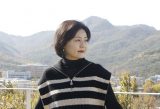Hyunjoo Jung

Geography
Research Interests: Gender, Migration, Urban development, Spatial politics
Work Experiences
Current
Associate professor, Department of Environmental Planning (Urban and Regional Planning division)
Director of Center for Asian Migration Studies, SNUAC
Editor in Chief (Space and Environment)
Editorial board member (Journal of Korean Planning Association, The Journal of Multicultural Society, Journal of Cultural and Historical Geography)
Courses Taught
Gender and Urban Planning, Multicultural Society and Urban Planning, Qualitative Methodologies in Spatial Planning, Studies in Spatial Structure
Major Publications
Journal articles
- Bark, H. and Jung, H., 2023, Selective inclusion and exclusion of ethnic-spatial ‘differences’: Neoliberal discourses and policies in local governance of Daerim-dong ‘Chinatown,’ Contemporary Society and Multiculture, 13(4).
- Lee, J and Jung, H., 2022, A Study of the city beautification discourses and the symbolic landscapes of Pyongyang: a comparative analysis between the Kim Jong-Il and Kim Jong-Un regimes, Journal of Korean Urban Geographical Society, 25(2).
- Lee, J and Jung, H., 2021, Understanding the Changes in Power Relations in North Korea through the Discourses of City Beautification of Pyongyang: Establishment of Kim Il Sung’s Monolithic Rule between 1953 and 1970, Review of North Korean Studies, 24(2).
- Park, Y. and Jung, H., 2021, Critical Review of Normal Family Ideology and Korean Housing Policy, Journal of Korean Urban Geographical Society, 24(3).
- Kim, J., Kim, G. and Jung, H., 2021, Reflections on Kimhae Multicultural Locality: From the space of distinction to encounter, The Journal of Localitology, 25.
- Jung, H., 2020, Korean Migration Policy: Differentiation of Migrant Workers’ Visa Status Based on Ethnicity and Gender, Journal of the Association of Korean Geographers, 9(3).
- Paek, Y., Jung, H., and Hong, S., 2020, Re-reading Kaesung Industrial District with the (New) Mobilities Paradigm: Production of Socio-spaces through Commuter Buses as a New Mobility System, Journal of the Korean Geographical Society, 55(5).
- Jung, H., 2018, (Re)unification as Spatial Projects: Relational Understanding of the Territoriality in the Era of (Re)unification through the Case of Kaesong Industrial Complex, Journal of Korean Urban Geographical Society, 21(1).
- Jung, H., 2016, Building up Gendered Urban Theories: The Contributions and Limits of Western Feminist Studies of the Urban and their Challenges to Korean Urban Geographies, Journal of Korean Urban Geographical Society, 19(2).
- Jung, H., 2015, Theoretical Exploration of Migrant Women’s Location as Multicultural Borderers: Conceptual Application of Borderlands, Intersectionality, and Transposition to the Feminist Migration Study, Journal of the Korean Geographical Society, 50(3).
- Jung, H., 2012, Paradoxical Spaces of Migrant Women: Incorporating Spatiality into Theorization of Migrant Women, Gender and Culture, 5(1).
- Jung, H., 2010, Reading ‘Little Manila’ along Daehangno: Exploring the Conceptualization of Transnational Spaces, Journal of The Korean Association of Regional Geographers, 16(3).
- Ko, I., Shim, W. and Jung, H., 2024, Multiplicity and path dependency in the modeling of historical routes: a case study of the Wonju basin in the central region of the Korean peninsula, The Professional Geographer, 76(1).
- Jung, H., 2019, Perspectives and Practices of Feminist Urbanism, SPACE, 624.
- Kim, Y. and Jung, H., 2018, Promoting and controlling labor migration: South Korean state’s intervention to control the temporary migrant worker program and its (un)intended outcomes, Journal of the Korean Geographical Society, 53(2).
- Jung, H., 2015, Exploring Ethical Issues in Visual Methodology: The Case of ‘Mental Mapping’ of Marriage Migrant Women in South Korea, Journal of Korean Urban Geographical Society, 18(3).
- Jung, H., 2014, Let Their voices be seen: exploring mental mapping as a feminist visual methodology for the study of migrant women, International Journal of Urban and Regional Research, 38(3).
- Jung, H., 2012, Constructing scales and renegotiating identities: women marriage migrants in South Korea, Asian and Pacific Migration Journal, 21(2).
- Jung, H., 2011, Contested space, contested imaginations: deconstructing the Greenbelt controversy in South Korea, HORIZONS, 2(2).
Books
- SNU GSES & Seoul Institute, 2023, Dictionary of Urban Planning Concepts, Hakkojae.
- Paek, Y. et al., 2021, Peace on the Korean Peninsula and the future of the Kaesong Industrial Complex, LP.
- Park, K. et al., 2020, Introduction to Urban Geography, Bobmunsa.
- Park, B. et al., 2019, The New Geopolitics of the Korean Peninsula: a New Imagination of Border, Division, and Unification, Hanul.
- Seoul Institute, 2017, City of Hope, Hanul.
- D. et al., 2016, Ethics and Visual Research Methods, Palgrave Macmillan.
- Lim, K. et al., Geomorphology of Diaspora,
- The Association of Korean Cultural and Historical Geographers, 2013, Understanding Contemporary Cultural Geography, Purengil.
- Jung, H. (trans.), 2015, Space, Place and Gender, Seoul National University Press (Massey, D., 1997, Space, Place and Gender, University of Minnesota Press)
- Jung, H. (trans.), 2011, Feminism and Geography: The Limits of Geographical Knowledge, Hangilsa (Rose, G., 1993, Feminism and Geography: The Limits of Geographical Knowledge, Polity).
